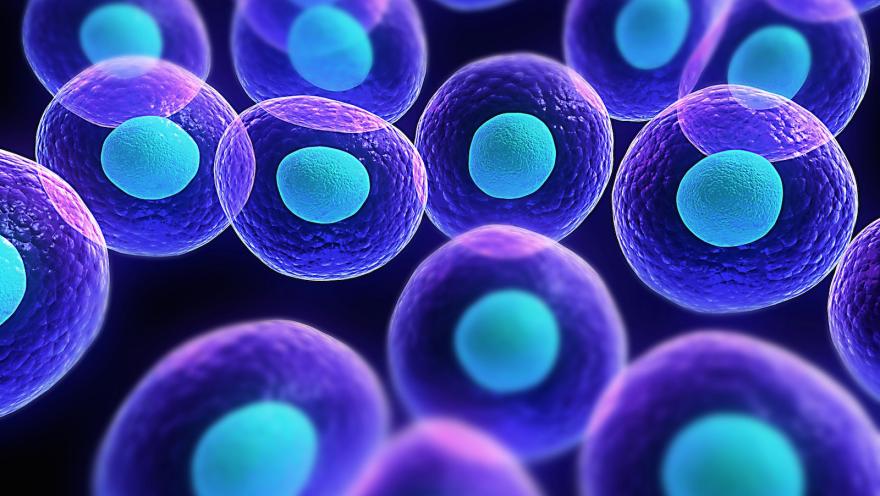Stem cell therapy could represent an effective and comprehensive approach to treating ALS. Stefania Corti, M.D., Ph.D., Assistant Professor of Neurology at the University of Milan, and her colleagues set out to find ways to improve stem cell therapy. Their work, supported by The ALS Association, was published on June 6, 2016 in the journal Human Molecular Genetics.
Stem cells are cells that are capable of developing into different cell types, including neurons (brain cells) and glia (brain support cells). Not all stem cells are the same and choosing stem cell populations with specific desirable properties could in fact improve the therapeutic potential of stem cell therapy.
To use a specific stem cell population, Dr. Corti and her colleagues turned human-induced pluripotent stem cells (iPSCs) into neural stem cells (NSCs) through a multi step process. They then sorted for NSCs that contained a specific combination of factors that are known to promote cell growth, cell nourishment and cell migration.
For the first time, Dr. Corti and her colleagues tested the therapeutic effect of the selected human iPSC-derived NSCs in both cells and mice.
First, they tested the selected NSCs in motor neuron cultures (cells that die in ALS) that were grown with ALS-causing support cells, which are known to be toxic in cell culture. The researchers found addition of the NSCs were neuroprotective.
Second, Dr. Corti and her colleagues tested whether these selected NSCs also had a positive effect in a well-characterized mouse model of ALS. The researchers found that when they injected NSCs into the mice, the cells migrated and supported neurons in the spinal cord and promoted neuron growth. Importantly, the researchers also observed a benefit in survival in the NSC treated mice.
This study is an encouraging step to improve stem cell therapy. There is still a lot of work to do to take this method of stem cell therapy to clinical trials, where it will be properly tested for safety and efficacy.
Read more in the press release.


Join the conversation. Please comment below.